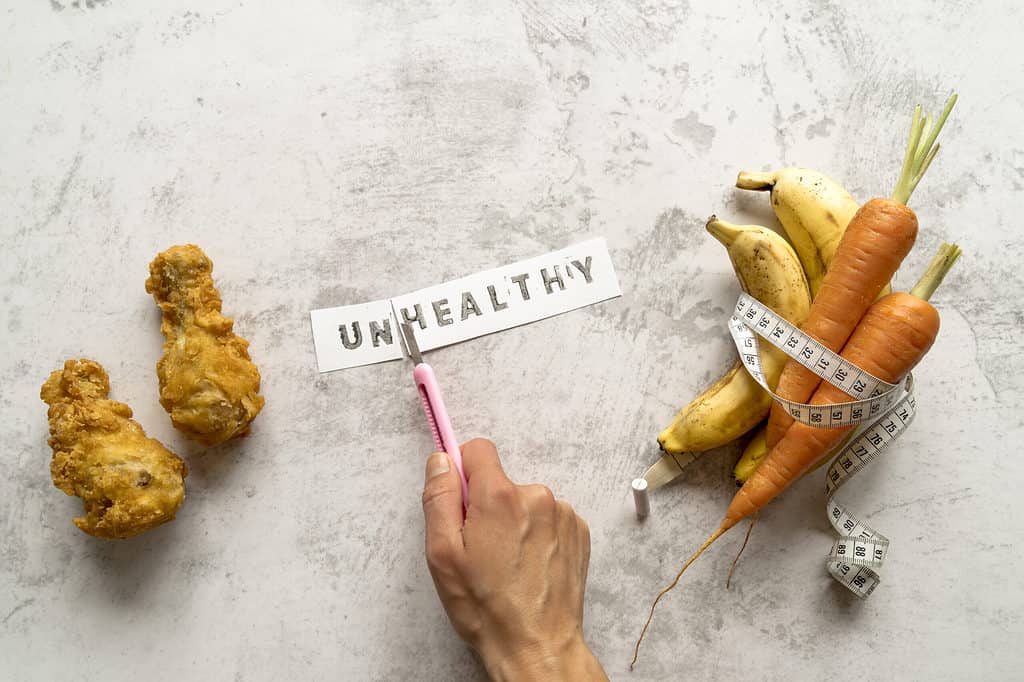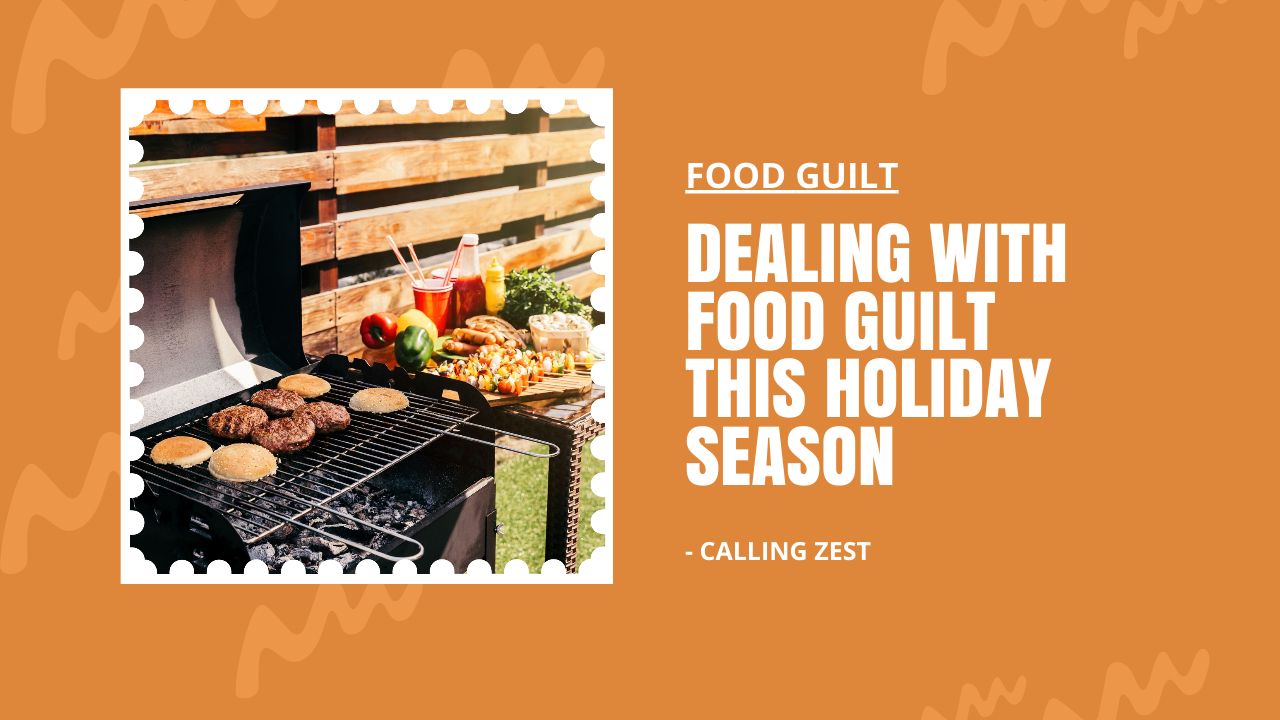Food guilt is not just an issue during holidays. It can happen to anyone who eats too much of anything, whether food or alcohol. The best way to avoid food guilt is to be mindful of what you eat and not overeat.
Food guilt can lead to overeating and obesity-related health problems, so it’s important to be mindful of your eating habits throughout the year.
Why do we feel Food Guilt?
When we eat too much and cannot control our food intake, we often feel like we are not good enough or shouldn’t eat so much.
We tend to compare ourselves with others and feel inferior when we eat too much. This leads to feeling guilty about what we eat, which is why it is important to practice mindfulness and self-compassion when eating.
The holidays are a time to reconnect with family and friends. But they can also be a time when people put on weight due to all the excess food and drink that is available.

If you want to stay healthy and happy during the holidays, it is important to plan and prepare for what you are going to eat. You should know your limits, what you will have, and how much you will need. You should also ensure that you get enough sleep and exercise during this time of year to maintain your health throughout the rest of the year.
7 Tips for Dealing with Food Guilt This Holiday Season
1. Change the Meanings of Food and Nutrition Labels
Food and nutrition labels are currently used to inform consumers about their eating. However, these labels can be misleading as they need standards for interpretation.
People often misinterpret the meaning of food and nutrition labels. Educating people about ethical eating is important to help them change their opinions about unhealthy foods. With this education, people can make decisions that benefit their health and well-being.
Ethical eating is not just about what you eat but also how you eat it. It is about being aware of your body and respecting it with healthy food choices that meet your needs.
2. Learn to Love Your Body
We have all been there, and at one point or another, we have felt pressure to lose weight. Whether it is from family, friends, or the media. But what if you could love your body as it is?
Self-love can be hard, but with a little effort and time, you will find yourself loving every part of yourself.
“I was just gonna say try to think of your body as a temple, and you are the priestess who takes care of it.”- Emily Giffin
3. Recognize What is and What is Not the Cause of Your Food Guilt
Many people experience food guilt, a negative response to eating certain foods. Food guilt can occur when you feel like you are not doing enough to maintain your body weight or when you overeat and then feel bad about it.
Food guilt can be caused by things like stress, not getting enough sleep, or having a busy schedule. If you’re struggling with food guilt, there are plenty of things that you can do to relieve this feeling. One of the most effective ways to combat food guilt is by nourishing yourself with healthy foods. By eating whole grains, vegetables, and fruits, you’re giving your body the nutrients that it needs to function properly.
4. How Self-Compassion Can Help You Let go of Complaining & Punishing Yourself For Eating
Self-compassion is the opposite of self-criticism. It is a kind of acceptance that you can do things that make you feel good and not bad. Self-compassion helps us to let go of judgment and stop punishing ourselves for eating or exercising less than we should.
One can practice Self-compassion by rewarding yourself after completing something that makes one feel good, such as taking a walk or eating more vegetables.
5. Different Approaches to Help Recover from Food Guilt
In the modern world, it is overwhelming to think about everything we consume and how much guilt we feel. We are constantly bombarded by advertisements and images of food, making it difficult to avoid consuming them.
Different approaches can help people recover from food guilt. Some of these approaches include eating a healthy diet and exercising regularly. However, other approaches include meditation, journaling, and self-care.
6. Ethical Eating
In modern society, food is everywhere. It is the most important part of our life and can be a source of pleasure or pain. We must take a step back to evaluate what we eat and why.

It’s important to know how to step back from our eating habits and look at them so we can make healthier choices. We need to think not only about how our food affects us physically but also how it affects us mentally.
7. Gut Healing
Empowering you to understand your gut microbiota better. There are many ways to heal your gut. It is a matter of understanding how to do it and what diet is best for you.
One can heal the gut by adopting healthy habits, including eating more vegetables, adding probiotics and prebiotics, avoiding processed foods and refined sugars, exercising regularly, and getting enough sleep.
Summary
As the holiday season approaches, people start to think about what they can do to avoid gaining weight. But the truth is that it’s really difficult to avoid gaining weight during holidays.
The perfect diet for you is one that you can stick with and maintain throughout the year. It should be based on your lifestyle, goals, and dietary preferences.
If you want to gain weight during holidays, you must plan ahead. Make sure that you have a long-term healthy diet plan before the holidays come around so that you don’t end up gaining too much weight or feeling like a failure when people compliment your figure at parties or events.
